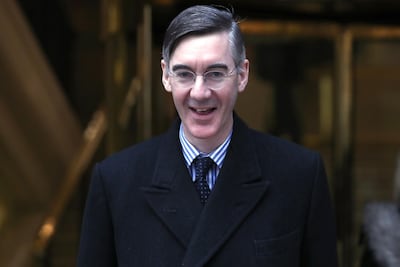With just six weeks to go until Brexit, it is no more clear what life will be like for the UK outside of the EU.
Award-winning author and journalist Michael Goldfarb has been working in London for over 30 years and can usually predict the outcome of a political issue long before it has been settled.
This time he's flummoxed but was able to offer a few options that lie open for the weeks ahead.
Britain leaves with a deal
MPs overwhelmingly rejected the withdrawal agreement prime minister Theresa May spent almost two years negotiating with the EU in January.
Mrs May is now trying to seek changes to the deal from the EU. The main point of contention is the highly unpopular "backstop", an insurance policy designed to avoid a hard border in Ireland.
Michael said it might be possible that some "cosmetic changes" could be made to the deal to change the minds of her rebellious Conservative Party colleagues, such as a five-year time limit on the backstop.
Or alternatively, the EU, afraid of the prospect of a disorderly Brexit, might offer an extension of Article 50, in order to give Mrs May more time to convince MPs of her withdrawal agreement.
“The EU does not want a crash out so it is entirely possible that in the last week of March, if nothing [has happened then] an extension of Article 50 could be offered,” says Michael. “This is a tradition of European negotiations to extend deadlines and kick the can down the road in the hope that something will turn up.”
A second referendum
A campaign for a second referendum or a "People's Vote"- as the campaign has been named – was launched in April 2018. The movement has attracted the public support of 59 MPs from both the Conservative and Labour Party as well as several well-known figures outside of politics.
While most MPs in parliament backed Remain in the 2016 referendum, Michael is sceptical about whether another referendum is a viable option because no high-profile member of either the governing party or the opposition has backed the People's Vote. Both Mrs May and Labour leader Jeremy Corbyn say they want to see the UK leave the EU.

"Within parliament, there's some very smart politicians supporting this on both sides from Conservative and Labour but they have been unwilling to break away from the leadership," he says.
Michael says that if a "no deal" scenario suddenly became likely in the weeks leading up to March 29, 2019, MPs might be willing to go against their party leadership and back a second referendum.
"It might well be that there would be a sudden surge of interest and MPs would put the vote back to the people. But I would put the prospects of that still at under 50 per cent," he adds.
No deal
The default position if the withdrawal agreement is not accepted in parliament is that Britain will leave the EU on March 29, 2019 with a no deal Brexit.
MPs voted down the withdrawal agreement in what was the worst defeat for a British government in history.
"In the days after the initial vote against the withdrawal agreement. I thought, we're going to crash out. Now I'm really not so sure," says Michael.
Most MPs do not want the UK to leave without a deal and parliament has supported a non-binding amendment rejecting such a scenario. However, there are some on the right of the Conservative Party, who would rather leave without a deal than what they see as a "bad deal".
He adds: "It is possible that the hardcore Brexiters such as Jacob Rees Mogg and Boris Johnson will dig their heels in and we will crash out."
General election
A general election could be a way to break the Brexit impasse.
The UK has five-year fixed term parliaments and another election is not due until June 2022. Mrs May could call an early election but she would need two thirds of MPs to support her. And she has ruled out holding a general election until the end of the current term.
The Labour Party say they want a general election, which according to Michael, is because they believe they will win and can take control of the Brexit process.
"Jeremy Corbyn wants a general election. He is convinced because he had an unexpectedly strong showing in the last general election in 2017 that it would take one more shove and he'd have a majority," he says. "But all of the current public opinion polling is showing this is not the case."
A general election would certainly lead to an extension of Article 50 but it is unclear what would happen after that.
A renegotiation of the withdrawal agreement
This is the only outcome that Michael will rule out.
The government could propose to completely reopen the withdrawal agreement that Mrs May spent months negotiating, which would require Article 50 to be extended for a significant period.
"The EU will not reopen in a substantial way the negotiation because it could go on forever. They're negotiating with Theresa May but really she is having more difficult negotiations with her own party," he says.
"Twenty-seven countries in the EU are not going to be held up by 60 or 70 MPs. It won't happen."



